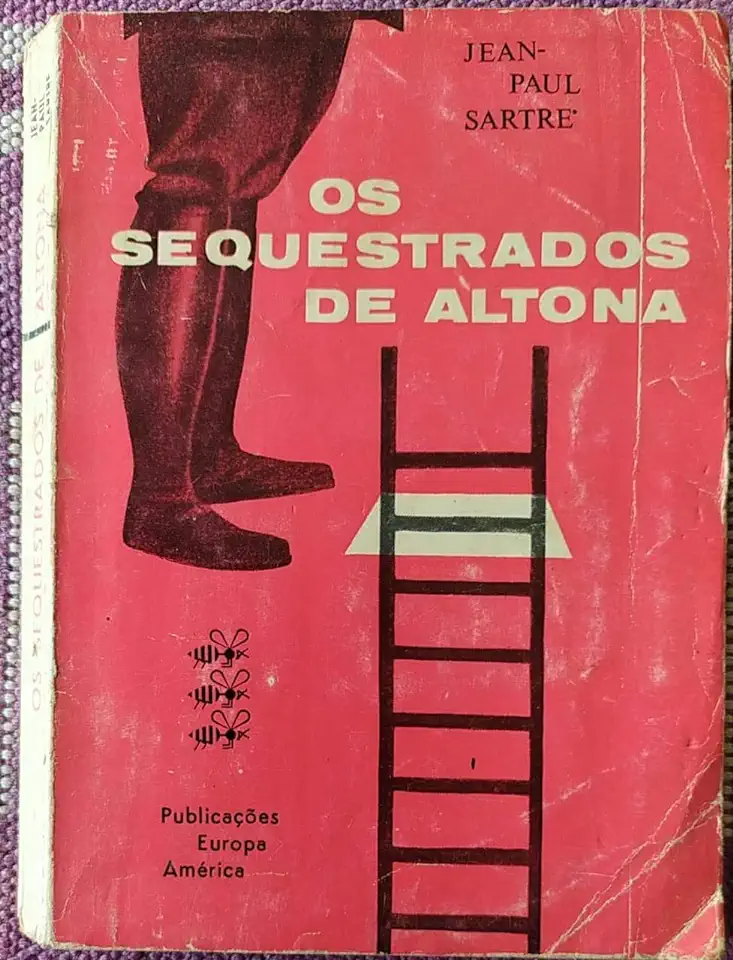
The Condemned of Altona - Jean Paul Sartre
The Condemned of Altona: A Haunting Exploration of Guilt, Responsibility, and the Weight of History
In the heart of post-war Germany, Jean-Paul Sartre's "The Condemned of Altona" delves into the depths of human consciousness, confronting the haunting specters of guilt, responsibility, and the enduring legacy of historical atrocities. Through the lens of a compelling narrative, Sartre weaves a tapestry of existential quandaries that resonate with profound emotional and intellectual power.
A Tale of Moral Turmoil
The story revolves around Franz von Gerlach, a former Nazi officer who has retreated into self-imposed confinement within his family's grand villa in Altona. Haunted by the atrocities he committed during the war, Franz grapples with the weight of his actions and the moral abyss that engulfs him. As the play unfolds, we witness Franz's inner turmoil, his desperate attempts to reconcile his past with the present, and his struggle to find redemption in a world shattered by war.
Confronting the Past
Sartre masterfully employs the device of flashbacks to transport readers into the horrors of the Nazi regime. We are confronted with the chilling reality of concentration camps, the dehumanization of individuals, and the moral compromises that individuals make in the face of overwhelming power. Through Franz's tormented recollections, Sartre forces us to confront the darkest aspects of human nature and the consequences of blind obedience to authority.
The Weight of Responsibility
At the heart of "The Condemned of Altona" lies the profound question of responsibility. Sartre challenges the notion of individual guilt and collective culpability, exploring the extent to which individuals can be held accountable for their actions within a larger societal context. Through Franz's journey, we are compelled to examine our own moral compass and the choices we make in the face of adversity.
A Haunting Psychological Drama
Sartre's play is not merely a historical account; it is a deeply introspective psychological drama that delves into the complexities of the human psyche. Franz's inner demons, his fractured relationships, and his desperate search for meaning in a world devoid of hope create a hauntingly evocative atmosphere. The play's exploration of trauma, grief, and the lingering effects of war resonates with profound emotional depth.
A Timeless Masterpiece
"The Condemned of Altona" transcends the boundaries of time and place, offering a timeless meditation on the human condition. Sartre's philosophical insights, his unflinching portrayal of human frailty, and his unwavering commitment to truth make this play a must-read for anyone seeking to understand the complexities of guilt, responsibility, and the enduring impact of history.
Why You Should Read "The Condemned of Altona"
- Immerse yourself in a gripping narrative that confronts the haunting legacy of war and the moral dilemmas that arise in the aftermath of atrocities.
- Engage with profound philosophical questions that challenge your understanding of individual guilt, collective responsibility, and the nature of human agency.
- Experience the emotional depth of a psychological drama that delves into the complexities of trauma, grief, and the desperate search for redemption.
- Gain a deeper appreciation for the power of literature to illuminate the darkest corners of human experience and inspire reflection on our own moral choices.
"The Condemned of Altona" is a literary masterpiece that will leave an indelible mark on your mind and soul. Prepare to be challenged, moved, and profoundly affected by this extraordinary work of art.
Enjoyed the summary? Discover all the details and take your reading to the next level — [click here to view the book on Amazon!]